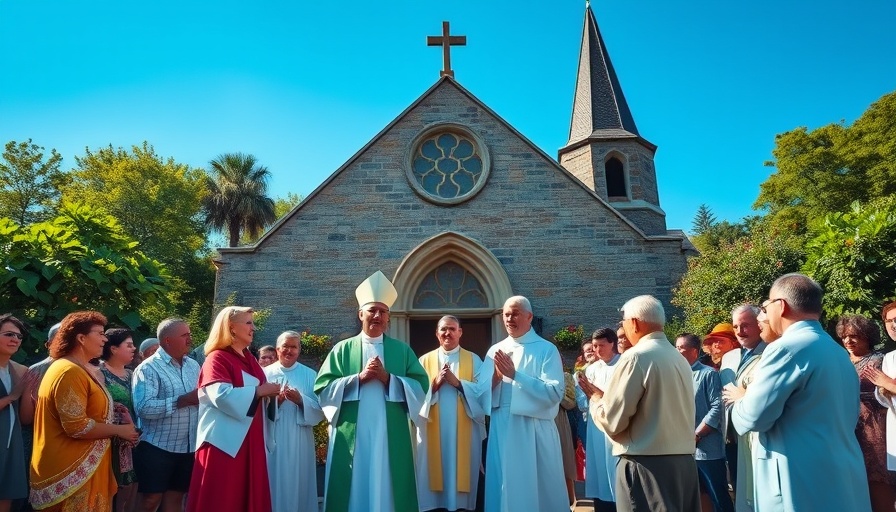
Embracing Change: A Call to Renewal in the IMBISA Region
As the Catholic Church navigates the complexities of today’s dynamic landscape, Bishop Masilo John Selemela of Pretoria urges priests in the Inter-Regional Meeting of Bishops of Southern Africa (IMBISA) to embrace change as a vital avenue for renewal. During a recent workshop focused on change management, Selemela framed change not as a disruption but as a sacred opportunity for growth and renewal.
Shaping a Renewed Church Landscape
The workshop, held at the Lumko Institute in South Africa, brought together 25 priests from Southern African countries including Angola, Lesotho, Mozambique, Namibia, South Africa, and Zimbabwe. This initiative served as a platform for enhancing their skills in navigating pastoral transitions—crucial for adapting to ongoing ecclesiastical and societal shifts. Bishop Selemela articulated the necessity for introspection within the Church, stating, “Unless we refresh and renew ourselves, we will never be able to give proper direction.” This sentiment resonates profoundly in an age marked by rapid evolution and growing complexity.
Insights on Structural Evaluation
As the ongoing Synod on Synodality continues to unfold, Selemela connected the workshop’s themes to a larger vision for renewal—asserting that the Church must first examine its internal structures to truly fulfill its mission. “The Church cannot renew the world if it does not first renew itself,” he noted. Priests must not only be spiritually grounded but also socially aware and emotionally resilient, as they guide their communities through turmoil and transformation.
Navigating Growth Amid Challenges
With many regions in IMBISA grappling with significant socio-economic challenges, including high youth unemployment and persistent inequality, the responsibility of priests extends beyond spiritual guidance to include social advocacy. Bishop Selemela cautioned that failure to understand the local dynamics might lead to irrelevance in the eyes of the communities they serve.
Building a Synodal Church Together
Selemela encouraged greater participation from lay members of the church, emphasizing that mutual ownership of the Church’s mission is paramount. He asserts that this collaborative approach reflects the heart of synodality, a principle that calls for listening, walking together, and discerning collectively. In times of transition, the need for clear communication and a shared pastoral vision has never been more critical, as evidenced by workshop discussions on mental health, inter-generational tensions, and societal crises.
The Importance of Ongoing Formation
Ongoing formation is not a luxury, but a necessity for a meaningful and missionary priesthood. Skills development, emotional well-being, and resilience are the keystones for any clergy wishing to make a profound impact in their congregations. The IMBISA workshop facilitated by experts in the field presents a framework for growth, carefully balancing spiritual and social responsibilities.
Conclusion: Beyond the Workshop
The issues discussed at this workshop encapsulate a broader call to action for the Church in the IMBISA region. Pastors are urged to approach their vocations not only with a spirit of service but also with an evolving mindset that recognizes change as an opportunity rather than a threat. How can we apply these insights to our own organizational transformations? By understanding and embracing change, we can chart a course toward a more engaged and effective ministry. Engage with your community and consider how your skills can contribute to fostering a resilient and responsive Church.
 Add Row
Add Row  Add
Add 




Write A Comment